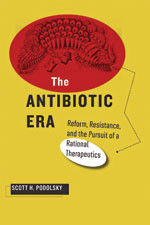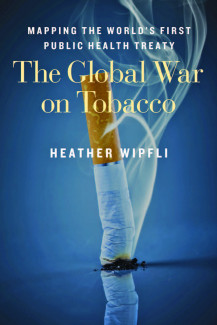
Johns Hopkins UniversityEst. 1876
America’s First Research University
Now Browsing:
Meet Us In Houston: American Society for Bioethics and Humanities
If you are in Houston for the ASBH Annual Meeting, be sure to stop by Booth #408 to meet our staff, browse our latest publications, and and take advantage of special meeting discounts. Throughout the meeting and after, JHUP books will be available at a 30% discount when your use the discount code HNAF. Check out what’s new and recent from JHUP in bioethics and related fields!
 The 36-Hour Day by Nancy L. Mace, M.A., and Peter V. Rabins, M.D., M.P.H.
The 36-Hour Day by Nancy L. Mace, M.A., and Peter V. Rabins, M.D., M.P.H.
Originally published in 1981, The 36-Hour Day was the first book of its kind. Thirty years later, with dozens of other books on the market, it remains the definitive guide for people caring for someone with dementia. Now in a new and updated edition, this best-selling book features thoroughly revised chapters on the causes of dementia, managing the early stages of dementia, the prevention of dementia, and finding appropriate living arrangements for the person who has dementia when home care is no longer an option.

In The Antibiotic Era, physician-historian Scott H. Podolsky narrates the far-reaching history of antibiotics, focusing particularly on reform efforts that attempted to fundamentally change how antibiotics are developed and prescribed. This sweeping chronicle reveals the struggles faced by crusading reformers from the 1940s onward as they advocated for a rational therapeutics at the crowded intersection of bugs and drugs, patients and doctors, industry and medical academia, and government and the media. During the post–World War II "wonder drug" revolution, antibiotics were viewed as a panacea for mastering infectious disease. But from the beginning, critics raised concerns about irrational usage and overprescription. The first generation of antibiotic reformers focused on regulating the drug industry. The reforms they set in motion included the adoption of controlled clinical trials as the ultimate arbiters of therapeutic efficacy, the passage of the Kefauver-Harris amendments mandating proof of drug efficacy via well-controlled studies, and the empowering of the Food and Drug Administration to remove inefficacious drugs from the market. Despite such victories, no entity was empowered to rein in physicians who inappropriately prescribed, or overly prescribed, approved drugs. Now, in an era of emerging bugs and receding drugs, discussions of antibiotic resistance focus on the need to develop novel antibiotics and the need for more appropriate prescription practices in the face of pharmaceutical marketing, pressure from patients, and the structural constraints that impede rational delivery of antibiotics worldwide. Concerns about the enduring utility of antibiotics—indeed, about a post-antibiotic era—are widespread, as evidenced by reports from the Centers for Disease Control and Prevention, academia, and popular media alike. Only by understanding the historical forces that have shaped our current situation, Podolsky argues, can we properly understand and frame our choices moving forward.

Winner, 2015 PROSE Award in Sociology and Social Work This study of Médecins Sans Frontières / Doctors Without Borders (MSF) casts new light on the organization’s founding principles, distinctive culture, and inner struggles to realize more fully its "without borders" transnational vision. Pioneering medical sociologist Renée C. Fox spent nearly twenty years conducting extensive ethnographic research within MSF, a private international medical humanitarian organization that was created in 1971 and awarded the Nobel Prize for Peace in 1999. With unprecedented access, Fox attended MSF meetings and observed doctors and other workers in the field. She interviewed MSF members and participants and analyzed the content of such documents as communications between MSF staff members within the offices of its various headquarters, communications between headquarters and the field, and transcripts of internal group discussions and meetings. Fox weaves these threads of information into a rich tapestry of the MSF experience that reveals the dual perspectives of an insider and an observer.\

The tobacco industry has capitalized on numerous elements of globalization—including trade liberalization, foreign direct investment, and global communications—to expand into countries where effective tobacco control programs are not in place. As a consequence, tobacco is currently the leading cause of preventable death in the world. Each year, it kills more people than HIV, malaria, and tuberculosis combined. Amid evidence of an emerging pandemic, a committed group of public health professionals and institutions sought in the mid-1990s to challenge the tobacco industry’s expansion by negotiating a binding international law under the auspices of the World Health Organization. The WHO Framework Convention on Tobacco Control (FCTC)—the first collective global response to the causation of avoidable chronic disease—was one of the most quickly ratified treaties in United Nations history. In The Global War on Tobacco, Heather Wipfli tells the engaging story of the FCTC, from its start as an unlikely civil society proposal to its enactment in 178 countries as of June 2014. Wipfli also reveals how globalization offers anti-tobacco advocates significant cooperative opportunities to share knowledge and address cross-border public health problems.
Login to View & Leave Comments
Login to View & Leave Comments


